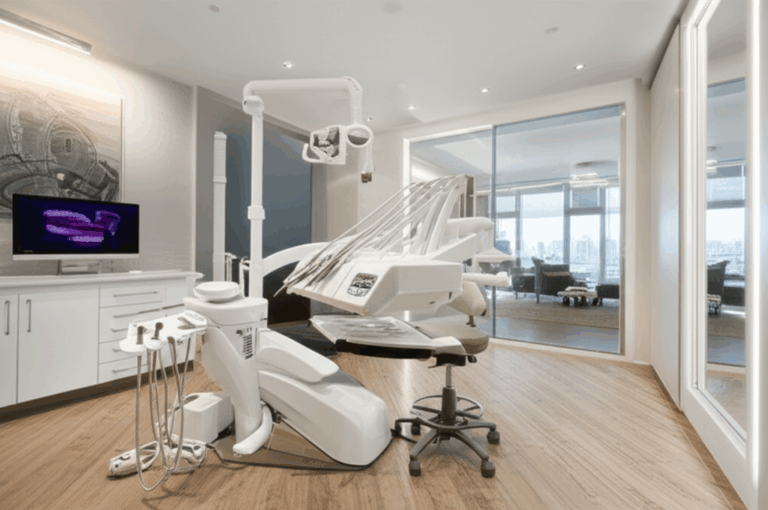
Can a Dentist Do Surgery? The Definitive Guide to Dental Surgical Procedures
Table of Contents
- Simple Extractions
- Gum Procedures
- Abscess Treatment
- Simple Bone Work
- Root Canal Therapy (Surgical and Non-surgical)
- The Role of Oral & Maxillofacial Surgeons
- Periodontists and Their Work
- Endodontists and Special Root Surgeries
Introduction: My Journey Into the World of Dental Surgery
The first time I heard someone ask, “Can a dentist do surgery?” I realized just how mixed up people get about dentistry and surgery for the mouth. After spending years working with both regular dentists and special dentists, I’ve learned the answer is simple but also not so simple. Yes, dentists do some types of surgeries, but not all dentists do every surgery—and, honestly, you wouldn’t want them to.
My goal here is to clear things up, sharing what I’ve seen and learned myself. Whether you’re looking at a simple tooth pull or dealing with something bigger—like surgery on your jaw or getting dental implants—this guide will show what dentists can do, when you need a specialist, and how to make the best and safest decisions for your mouth.
General Dentists vs. Dental Specialists: Understanding the Main Difference
Before I can answer what a dentist can or can’t do, you have to know the difference between a regular dentist and a dental specialist. This really matters.
General Dentist (DDS/DMD): Your Usual Tooth Doctor
Think of your general dentist as the main doctor for your mouth. After four years of school, they become the person you see for check-ups, cleanings, fillings, crowns, and other basic care. Most of us see these folks twice a year, and for many people, that’s enough.
Here’s the point: general dentists don’t just clean teeth. They can also do a number of small surgeries, as long as they have the skills and their state license lets them.
Dental Specialists: The Real Surgery Pros
Now, if you have bigger problems: stuck wisdom teeth, need dental implants, or have really bad gum disease. That’s when you see the specialists. Dental specialists—like oral surgeons, gum doctors (periodontists), and root canal experts (endodontists)—go back to school for another 2-6 years after dental school. They know a lot and do surgeries that need lots of skill, sometimes using heavy sedatives or even working in a hospital.
I remember when a family member needed their wisdom teeth out. Our general dentist looked at the X-ray and said, “You know, it’s safer if you see an oral and maxillofacial surgeon for this.” That’s the kind of honesty you want.
What Surgeries Can a General Dentist Do?
Here’s where it gets interesting. Over the years, I’ve seen regular dentists do a surprising amount of small surgeries—and do them pretty well. But they can’t do everything. Here’s what I’ve learned.
Simple Tooth Extractions
This is the main surgery a regular dentist does. If you have a tooth that is easy to see and comes out without trouble, your general dentist can probably take care of it. Think baby teeth or an adult tooth that’s too damaged.
For example, I once needed a molar out. My dentist numbed my mouth, used a couple of tools, and the tooth was out in less than ten minutes. No problem.
Simple Gum Procedures
Dentists are taught to do easy gum surgeries, like gingivectomy (removing a bit of extra gum) or frenectomy (cutting a small bit of tissue under the tongue or lip). These sound worse than they are, and your dentist should be able to do them in the office.
Abscess Treatment (Cutting and Draining)
Got a tooth abscess? That hurts—a lot. I’ve seen one up close, and it’s not fun. If you get an infection that’s swollen and has pus, a dentist can cut into it and let the pus out, giving you quick relief before they do more work.
Simple Alveoloplasty (Smoothing Jaw Bone)
When getting dentures, sometimes your dentist needs to shape a small area of jaw bone to help the dentures fit right. This “alveoloplasty” is a small surgery, and your general dentist can usually handle it if it’s not tricky.
Some Root Canals (Easy and Small Surgeries)
Root canal treatment is also something general dentists do—if it’s not too hard. They’ll do the easy ones themselves. If it gets complicated—odd root shape, big infection, or pain that won’t go away—most will send you to an endodontist (the root canal expert).
When a Specialist Is Needed: Knowing When Things Get Tough
Some surgeries are way above what general dentists can (or should) try. Trust me, you want someone who does this kind of thing every day. Here are the main specialist groups and what they do.
The Role of Oral & Maxillofacial Surgeons (OMFS)
Oral and maxillofacial surgeons—usually just called “oral surgeons”—are the experts in dental surgery. They work hard for their skills (4-6 years after dental school; sometimes, they even get a medical degree). Here’s what they’re good at:
- Impacted Wisdom Tooth Extraction
I watched a wisdom tooth surgery once, and I saw why you need a specialist. The teeth were very deep, nerves were close by, and problems could happen. The oral surgeon knew just what to do—the way a good pilot lands a plane in a storm.
- Dental Implant Placement
Ever wonder who puts those metal posts in your jaw? Oral surgeons do, and sometimes periodontists. They can also add bone if your jaw isn’t strong enough—a good skill to have when getting a new smile.
- Bone Grafting
If you’ve lost bone, these surgeons can use bone from somewhere else or use fake material to build up your jaw for implants.
- Hard Tooth Pulls and Jaw Surgery
If a tooth is broken under the gums, is tangled with nerves, or near an important spot, you don’t want to risk it with just a general dentist. Surgeons also fix jaw problems—like getting jaws lined up or fixing the face.
- Face Injuries, Tumors, and TMJ Surgery
Fixing broken jaws, taking out tumors, and repairing jaw joint (TMJ) problems—all part of an oral surgeon’s job.
Periodontists and Their Work
Periodontists are the gum and bone experts. They:
- Do gum grafts
- Put in dental implants (sometimes)
- Handle very bad gum disease with cleaning surgery and special repairs
- Make teeth “look longer” by reshaping gums and bone
From what I’ve seen, periodontists often work with other doctors when someone needs a lot of mouth repairs and has lost a lot of gum or bone.
Endodontists and Special Root Surgeries
Regular dentists handle a lot of tooth pain, but when it gets tough—like with a root canal gone wrong or infection at the tip—you want an endodontist. These experts do surgeries like apicoectomy (removing the tip of a root), which really needs a careful touch.
Qualifications and Training: What to Look For
I can’t say this enough: you always want to check how your dentist was trained. For any surgery, experience matters. Your dentist should have a DDS or DMD; specialists go to extra school (3-6 more years). Some even get board certified, a sign they have extra skills.
Most important, every real dentist or specialist must be licensed in their state. They’re also supposed to keep learning new things, since the way we care for teeth keeps changing.
If you’re not sure, just ask: “Have you done this before? Do I need a specialist?” A good dentist will be happy to tell you.
Patient Safety and When to Ask for a Specialist
I’ve heard stories about patients pushing their regular dentist to “just try it.” Most good dentists will be honest about what they can and cannot do. Here’s when seeing a specialist is smart:
- Surgery Is Complicated: The area is close to nerves or sinuses, or just seems tough.
- Health Problems: If you have serious health issues (heart, immune system, blood thinners), a specialist’s office is safer.
- Deep Sedation: Need to be put to sleep or near asleep? Oral surgeons know how.
- Big Risk of Problems: Surgeons know how to handle emergencies.
At the end of the day—your dentist should know when to say, “This is not for me.” That’s a good thing, not a bad thing.
Choosing the Right Dental Professional for Your Needs
So, how do you pick the right dentist or specialist? Here’s what has worked for me and others.
Be open with your dentist. Share your worries, your health issues, and your wallet concerns. Most dentists are glad to explain your choices—both good and bad.
If you don’t get it, ask for simple answers, pictures, or even short videos. Sometimes, simple stories help—getting a dental implant is more like building a new part, not just fixing a flat tire.
If you’re not sure, ask another dentist or specialist what they think. Sometimes, a new person sees a different way or a problem no one noticed.
Board certification, years on the job, what pain medicines they use, if they work in a hospital—all of this matters. Don’t feel bad for checking; this is about your health.
I’ve seen how working with a good dental lab—like a trusted dental ceramics lab or a good implant lab—can change how your crowns, dentures, or implants feel and look.
Data, Real Stories, and What the Numbers Show
Let’s look at some facts.
- Simple Tooth Extractions: General dentists do about 70% of these, with over 95% going well.
- Wisdom Tooth Extractions: More than 5 million are done in the US each year—most by oral surgeons. Over 98% are successful with a specialist.
- Dental Implants: About 3 million Americans have them, and they work well around 95-98% of the time after ten years. Specialists do better with tougher cases.
- Gum Surgery and Bone Grafts: Work well (above 90%) with trained specialists.
- Hard Surgeries (Jaw, Face, TMJ): People heal better and have fewer problems when experts do the work.
It’s not just about making it through surgery. It’s about healing fast, staying safe, and getting strong, lasting teeth. That outcome is connected to how much training your dentist or surgeon has.
Conclusion: Helping You Make Good Choices for Dental Health
After years of seeing dental care up close, I can say this: regular dentists do a lot—even some surgery. But when things get tricky, the safest bet is to see a specialist. Training and practice really do matter.
Here’s what I want you to remember:
- Don’t be shy about asking your dentist what they really feel comfortable doing
- Know the difference between easy procedures and the hard stuff
- Respect the skills that come from extra years of study
- Don’t worry if your dentist suggests a specialist—that’s a smart, caring thing to do
- Stand up for what makes you feel safe and gives you the best results
Remember, dental care is teamwork. Your dentist, your surgeon, even your dental lab (like a good digital dental lab), all help you get and keep a strong smile.
In the world of dental surgery, what you know can really help you. Ask questions. Learn the basics. Pick what’s right for you.
Disclaimer: This article comes from my own experience and what’s normal in dental care today. It’s meant to help you understand your choices, not take the place of talking to a professional. Always ask your own dentist or doctor about your own situation.








